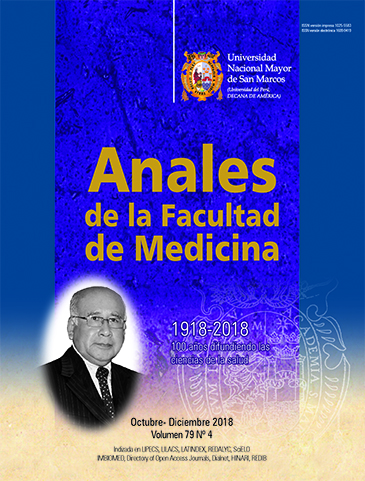Active methodology and learning styles in the teaching process of the research methodology course of a faculty health sciences
DOI:
https://doi.org/10.15381/anales.v79i4.15632Keywords:
Learning, Methodology, Research, StudentsAbstract
Introduction. The educational model focused on learning attempts to provide the student a more important role in the process of acquiring knowledge, for this it is necessary to identify preferences or learning style of the students. Objectives. Analysis the influence of the use of active methodology and learning styles in students of the methodology course of undergraduate research. Methods. Quantitative study of quasi-experimental, prospective longitudinal design, the study population consisted of undergraduate students of the research methodology course. A non-probabilistic sample was used for convenience, consisting of 79 students. The instrument used was the learning style test developed by David Kolb. The implementation of the active methodology was carried out during the development of the course. Results The participation of the students during the development of classes and the use of texts presented a significant increase. The assimilator learning style corresponded 78,5% and 12,6% for the divergent before the implementation of the methodology and at the end of the study, the students modified their learning style in a significant way with a predominance of assimilator learning style 62 % and 22,8% for the convergent style. Conclusions. The active methodology allows the active participation of the student through questions, contributions and encourages the use of texts. It also significantly modifies the learning style towards an assimilator and convergent style.Downloads
Published
2018-12-30
Issue
Section
Artículo Original
License
Copyright (c) 2018 Anales de la Facultad de Medicina

This work is licensed under a Creative Commons Attribution-NonCommercial-ShareAlike 4.0 International License.
Those authors who have publications with this magazine accept the following terms:
- Authors will retain their copyrights and guarantee the journal the right of first publication of their work, which will be simultaneously subject to Creative Commons Attribution License that allows third parties to share the work as long as its author and its first publication this magazine are indicated.
- Authors may adopt other non-exclusive licensing agreements for the distribution of the version of the published work (eg, deposit it in an institutional electronic file or publish it in a monographic volume) provided that the initial publication in this magazine is indicated.
- Authors are allowed and recommended to disseminate their work over the Internet (eg: in institutional telematic archives or on their website) before and during the submission process, which It can produce interesting exchanges and increase quotes from the published work. (See El efecto del acceso abierto ).
How to Cite
1.
Matzumura Kasano JP, Gutiérrez-Crespo H, Pastor-García C, Zamudio-Eslava LA, Ruiz-Arias RA. Active methodology and learning styles in the teaching process of the research methodology course of a faculty health sciences. An Fac med [Internet]. 2018 Dec. 30 [cited 2025 Jun. 5];79(4):293-300. Available from: https://revistasinvestigacion.unmsm.edu.pe/index.php/anales/article/view/15632



